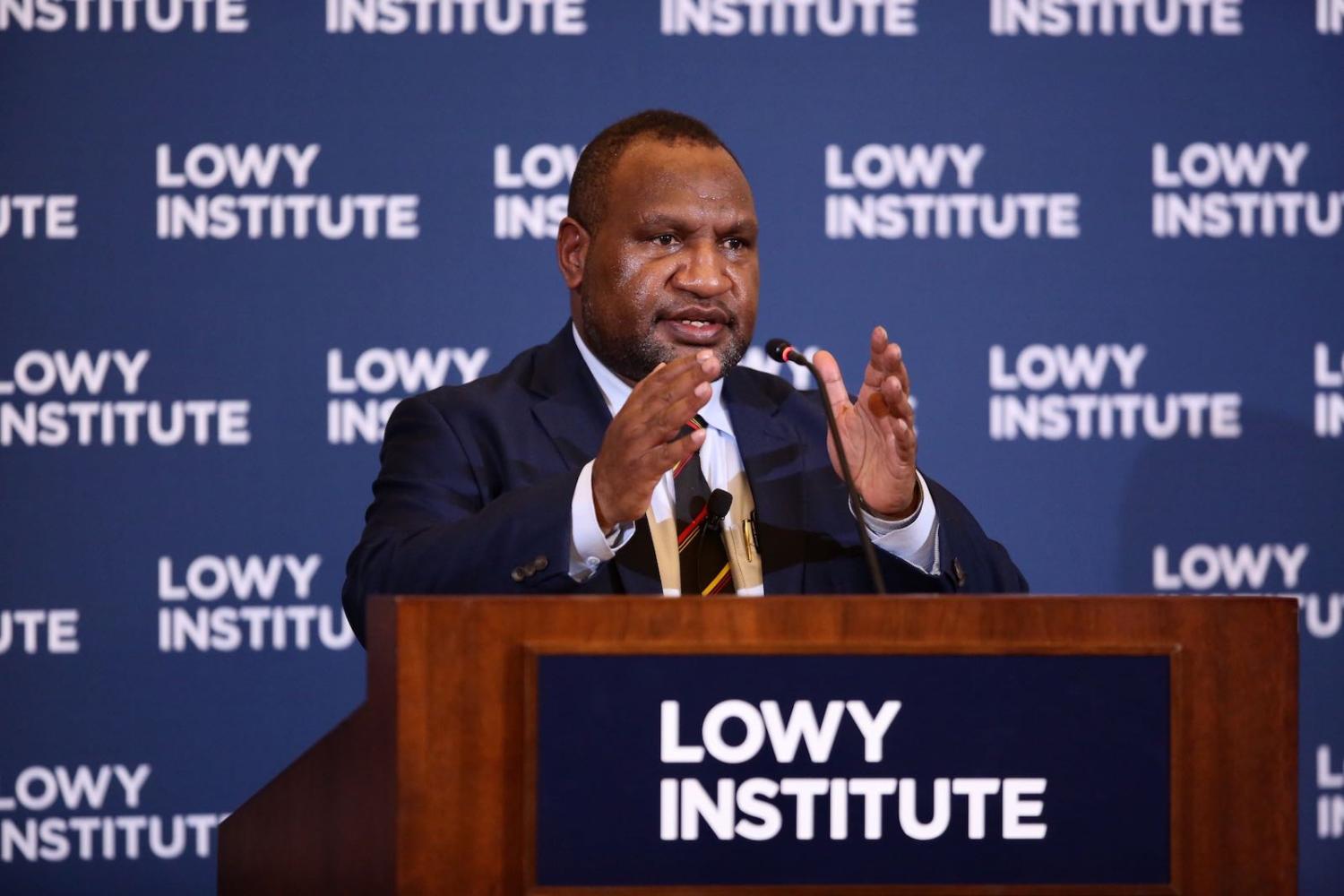Last week, the Australian government hosted Papua New Guinea’s Prime Minister James Marape on an official “Guest of Government” visit, just two months after Marape assumed the leadership of its nearest neighbour.
Australia’s Prime Minister Scott Morrison pulled out all of the stops, with the red carpet stretching from Sydney to Subiaco. Marape and his significant entourage – at least nine Ministers and five Governors – saw more of Australia in a week than some locals will see in a lifetime.
With only 15 months to go until vote of no confidence season begins again, and two-and-a-half years until the next election, change will have to start soon.
It’s a good way to set up a relationship between two PMs who should have a couple of years to consolidate their own political careers, while also considering next steps in a bilateral relationship that's critical for both countries.
The trip – organised at very short notice – checked all the boxes.
There was excellent and high-level political engagement in Canberra, which Marape noted was chilly weather-wise, but he was warmed by Canberra’s hospitality. There were good opportunities for connecting with business and community groups: a particularly significant moment was in Perth where 300 members of the PNG diaspora drove for hours for the chance to meet him. And, there were strategic opportunities to engage with the mining and resource, education and defence sectors.
For those who were keen to hear more from the newly minted PNG Prime Minister, Thursday night’s speech at the Lowy Institute – his first international address since taking office – allowed Marape to stitch together the themes he’s been setting out since taking office in May.
“We haven’t failed yet, as a failed state,” he said. “The potential and opportunity for us to reclaim our fullest potential is there.”
But with commendable candour, he accepted the first 44 years of his country's independence have not always been a success. The next phase of his country's history needs to be written, he said, describing it as “a new book”, with a very important first chapter.
As the leader whose story will be told in that book, Marape has thematically distanced himself from the style and substance of his predecessor, Peter O’Neill.
“I don't want PNG to be known as an oil and gas and gold country,” he said. “I want PNG to be known as a country that is the food basket of Asia.”
Agriculture and rural empowerment were consistent themes through the week, and an unapologetic stance on making sure resource projects large and small deliver real results for his country will have the boardrooms of some big resource companies a little nervous.
For Papua New Guineans, the focus on agriculture and sustainable development will be music to the ears. As will his statements that he’s stepping away from the deal-making process, leaving the responsibility to the public servants charged by legislation with making the arrangements.
The establishment of a commission to fight endemic corruption in his country will also be well received.

But that’s where the ambition of the new Prime Minister will encounter the realities that have plagued all of his predecessors. PNG’s economy is badly struggling, with the budget in need of urgent repair. The bureaucracy is weak, with limited capacity to suddenly shift gears. And two-thirds of the membership of Marape’s cabinet is the same as O’Neill’s, along with many senior officials.
While the intent for change seems genuine, Marape will have many vested interests and structural challenges working against him. Marape is saying all of the right things, but the honeymoon period before getting some runs on the board is quickly vanishing.
Marape has flagged an address to the nation next month to coincide with the 44th anniversary of independence where he’ll lay out his blueprint for change.
With only 15 months to go until vote of no confidence season begins again, and two-and-a-half years until the next election, change will have to start soon.
As for the bilateral relationship with Australia, while Manus is still a major distraction, this trip certainly put the relationship on a sure footing.
Marape also displayed a more personable side. From stopping to greet and take photos with the diaspora communities wherever he went, to introducing every member of his delegation at the end of his Lowy Institute address, the Prime Minister projected an aura of humility.
That aura will endear him to the people of PNG who show every sign that they’re ready to back their new PM as he tackles the task of writing a new book in the history of his nation.

